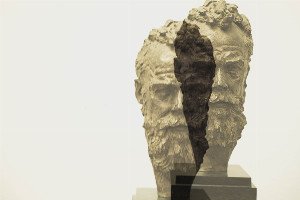Matheus Ganiko-Dutra, Kevin Luiz Lopes-Delphino, Caio Augusto Martins Furtado
POLÍTICAS EDITORIAIS
Introduction
PolÍticas editoriais. Estudo sobre a relação entre trabalho e políticas editoriais na publicação científica. Analisa periódicos de Educação para definir 'políticas editoriais', otimizando o setor e a pesquisa.
Abstract
Existe uma relação retroalimentativa entre o trabalho editorial e as políticas editoriais que desempenha importante papel operacional nas atividades científicas envolvendo autores, editores, avaliadores, agências de fomento à pesquisa, bases indexadoras de periódicos, entre outros agentes. Nesse sentido, uma definição específica e consensual do conceito de políticas editoriais pode contribuir com a regulamentação da publicação científica. Esse trabalho teve como objetivo analisar a relação entre as informações disponibilizadas nos sites de periódicos da área de Educação e suas políticas editoriais, bem como, definir um conceito de “políticas editoriais”. Nesta pesquisa de paradigma interpretativo e caráter qualitativo, foi realizada uma análise documental e temática das informações disponibilizadas nos sites de cinco periódicos do estrato A1 do Qualis CAPES. Os dados foram organizados em três principais categorias: sobre a revista, fluxo editorial e questões éticas. A partir disso, foi proposta uma definição de “políticas editoriais” de caracteres normativo, técnico e político, que, ao reivindicar caráter consensual, pode contribuir para a operacionalidade do trabalho editorial e para a tomada de decisões nas atividades relacionadas à publicação científica.
Review
The paper titled "POLÍTICAS EDITORIAIS" addresses a highly pertinent and often overlooked aspect of scientific communication. The abstract clearly establishes the foundational premise: a reciprocal relationship between editorial work and editorial policies, crucial for the operational efficiency of scientific activities involving multiple stakeholders. The authors aim to analyze the information presented on journal websites in the Education field concerning their editorial policies, with the ultimate goal of formulating a specific and consensual definition of "editorial policies" to better regulate scientific publication. This objective is both ambitious and timely, reflecting a critical need for clarity and standardization in the academic publishing landscape. Methodologically, the study adopts an interpretative paradigm with a qualitative approach, employing documentary and thematic analysis of information gathered from the websites of five A1-stratum journals in the Qualis CAPES system within the Education area. The data organization into three main categories—"sobre a revista" (about the journal), "fluxo editorial" (editorial flow), and "questões éticas" (ethical issues)—appears logical and comprehensive for dissecting the multifaceted nature of editorial policies. The core contribution lies in the proposed definition of "políticas editoriais," characterized as normative, technical, and political. This definition is presented as a potential cornerstone for achieving consensus, thereby enhancing the operational aspects of editorial work and aiding decision-making in scientific publication activities. While the paper's objective and proposed definition hold significant potential for advancing the understanding and practice of scientific publishing, some aspects warrant further consideration. The analysis is based on a relatively small sample of five A1-stratum journals, which, despite their high standing, might limit the generalizability of the findings across the broader spectrum of academic journals, even within the Education field, let alone other disciplines. Additionally, the claim of the proposed definition having a "consensual character" would benefit from a more explicit explanation of how this consensus was, or will be, sought or validated beyond the study's analytical framework. Future research could broaden the sample to include journals from various strata and disciplines, or even conduct empirical studies to test the practical application and impact of the proposed definition. Despite these points, the work offers a valuable contribution to the ongoing discourse on the formalization and professionalization of scientific editorial practices.
Full Text
You need to be logged in to view the full text and Download file of this article - POLÍTICAS EDITORIAIS from Educação em Revista .
Login to View Full Text And DownloadComments
You need to be logged in to post a comment.
Top Blogs by Rating
Electro-Pulse: Unveiling the U...
By Sciaria
Beyond Silicon: How Living Mat...
By Sciaria
The Data Diet: What Big Data *...
By Sciaria
Favorite Blog
Phantom Power: Unmasking Your...
By Sciaria
The Geological Secret in Your...
By Sciaria
The Unspoken Wisdom: Embracing...
By Sciaria
Related Research
Intervenção psicológica breve, estruturada e lúdica para melhorar o coping infantil durante a hospitalização
Disaster citizenship and solidarity of informal groups: a case study in disaster-affected villages in eastern china
Optimizing bio-oil yield from pyrolysis of spent bleaching earth for liquid fuel production
Share
Notice Board
- ANALISIS PENGENDALIAN KUALITAS (QUALITY CONTROL) DALAM MENINGKATKAN PRODUK PUPUK ORGANIK (KOMPOSTER) DAN DAUR ULANG DI WILAYAH SUNTER JAYA
- PENINGKATAN PEMAHAMAN MENGENAI AKIBAT KENAKALAN REMAJA BAGI PESERTA DIDIK SMA NEGERI 16 SEMARANG
- THE APPLICATION OF LOCAL WISDOM MANAGEMENT IN DAYAH EDUCATION: A STUDY OF DAYAH JAMIAH AL-AZIZIYAH BIREUEN




